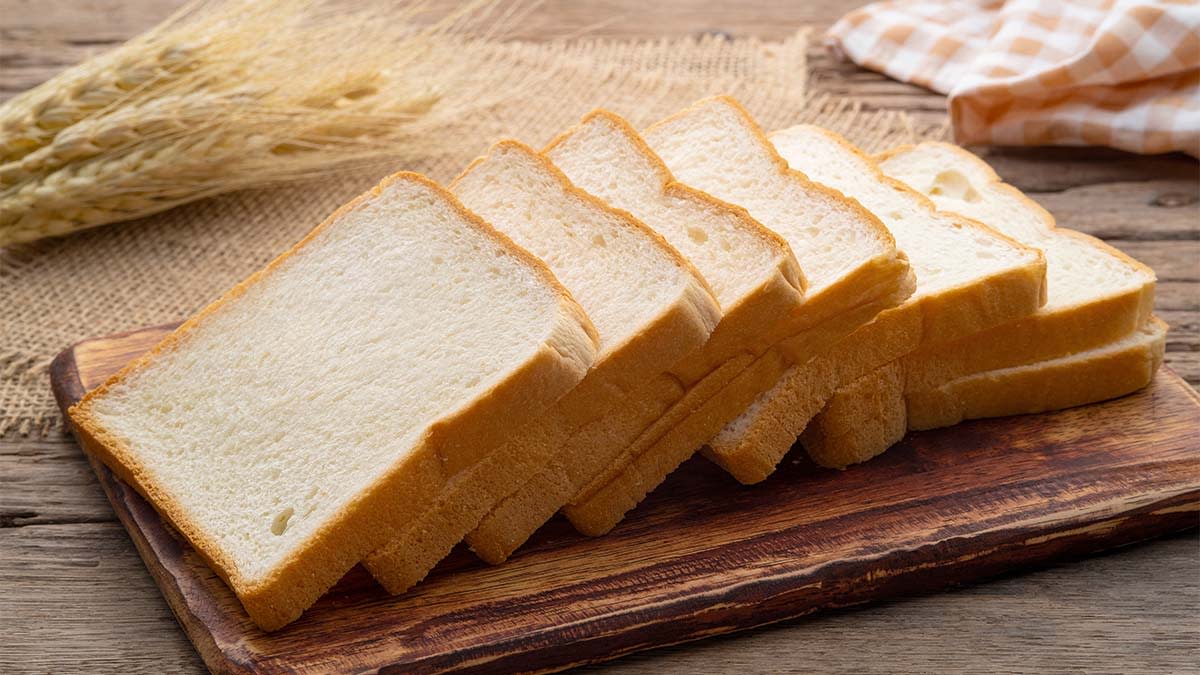Is Eating White Bread Directly Linked to a Higher Risk of Heart Disease?

Grain foods like bread and pasta help keep your heart in tip-top shape. It's long been believed that whole grains, because of their high fiber content, are the only option for protecting against heart disease. (Studies show that whole grains high in fiber reduce "bad" cholesterol, stabilize blood sugar levels, and lower blood pressure.) But while it's no secret that whole grains are a heart-healthy choice, it turns out that you don't need to completely avoid other types of grains. New research suggests that refined grains (such as white bread and rice) do not increase heart disease risk.
Refined Grains 101
Refined grains are milled to remove their bran and germ. This process softens their textures and extends their shelf life. According to the USDA, it also strips them of iron, dietary fiber, and many B vitamins. However, certain B vitamins — such as folic acid and niacin and iron — can be added back in. Check the ingredients list on any refined grain products you buy to ensure they're enriched with these nutrients.
Refined Grains and Heart Health
Does eating refined grains increase heart disease risk? The research varies, but a review of studies published in Trends in Cardiovascular Medicine suggests that refined grains do not contribute to increased risk of heart disease. Instead, the studies indicate that sugary drinks and red and processed meats are to blame.
Registered dietitian Elizabeth Ward, MS, RDN, co-author of The Menopause Diet Plan (Buy from Amazon, $14.29) explains why refined grains can actually be good for heart health. "When foods are targeted as 'bad,' people often ignore the company [they] keep, such as foods rich in saturated fat and added sugars," Ward says. "This study shows that, when considered separately, refined grains aren't at fault when it comes to cardiovascular disease. In fact, refined grains may promote good health because they're fortified with several B vitamins that are linked to good cardiovascular health, as well as iron, which is important for energy and overall health."
Ward also notes that eating refined grains can be part of a balanced diet. "Suggested grain consumption is based on total calorie intake — and for a woman over 50 who consumes 2,000 calories a day, the 2020-2025 Dietary Guidelines for Americans specifies at least three servings of whole grains out of a total of six servings daily," she explains. "That means experts actually think it's perfectly fine, and healthy, to eat refined grains every day to meet your overall grain quota. Going overboard on any food, including any type of grain, can lead to weight control problems and may interfere with normal blood glucose levels in women with prediabetes and diabetes. But as part of a balanced diet, I don't see any problem with consuming refined grains."
Finally, Ward clarifies the types of refined grains that can be safely classified as "healthy" — and we're sorry to report, desserts don't count. "It's important to note that we aren't talking about cookies, cake, and pastry," she says. "Rice, pasta, bread, and cereal are considered staple foods that many people consume and enjoy. Baked goods tend to be higher in calories, fat, and added sugars — and should be consumed in moderation."
Final Thoughts
Jill Weisenberger, MS, RDN, CDCES, CHWC, FAND, creator of The Prediabetes Meal Planning Crash Course, encourages people to track and consider their refined grain consumption on a daily basis. "I could eat a stack of pancakes with butter and syrup and a side of sausage or bacon," she says. "Or I could eat two slices of white bread with cheese and tomato or avocado toast. These breakfasts are hugely different health-wise." (The latter has more nutritional benefits.)
Speaking with your doctor is also an important step toward understanding how your diet impacts your health. "Bottom line: We can’t put all refined grains in the same category and we have to consider what else is being eaten," Weisenberger concludes.
Woman's World aims to feature only the best products and services. We update when possible, but deals expire and prices can change. If you buy something via one of our links, we may earn a commission.
Questions? Reach us at shop@womansworld.com.

